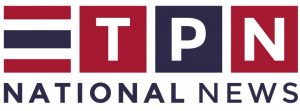Highlights of changes
-
Test and Go is gone, no pre-booking of hotels required (except for unvaccinated). A.K.A. no pre or post-arrival mandatory Covid-19 tests.
-
Thailand Pass remains mainly to prove insurance and vaccination status
-
Alcohol serving venues can stay open until Midnight, although continue to be converted into restaurants and not legally bars or nightlife
-
Mandatory insurance reduced to 10,000 USD
-
Effective May 1st
The general meeting of the Center for Covid-19 Situation Administration, chaired by Prime Minister Prayut Chan-O’Cha, has announced the cancellation of the ‘Test&Go’ scheme and zoning relaxation in controlled areas (orange zones), effective May 1st.
Firstly, Thailand Pass will remain, mainly to verify vaccination status and proof of insurance. This will be continually evaluated. Thailand Pass will also be paused temporarily to update the system for the new rules, set to start on the first of May. Those who have already booked will need to inquire individually with hotels/Thailand Pass about potential refunds or “grandfather” clauses after May 1st. Before May 1st, all current rules will apply.
As a result of scrapping the ‘Test&Go’ scheme, all mandatory Covid-19 tests for vaccinated travelers have been canceled upon arrival in the Kingdom and only one self-ATK test is recommended (but not compulsory) during their stay. If an infection is found, they are required to go for treatment through the insurance process. Essentially, once one enters Thailand and goes through confirmation of their Thailand Pass paperwork and customs, they are free to go where they wish as of May first.
For non-vaccinated tourists, an RT-PCR test is required on the 4th-5th day of arrival in Thailand. If negative, a self-ATK (rapid antigen) test is later recommended during their stay. If an infection is found, they are required to go for treatment through an insurance process. A non-vaccinated person must still pre-book a hotel for five days and conduct a mandatory five-day hotel stay/quarantine, for now, this may change later this year.
The CCSA also announced the reduction of the insurance minimum coverage for both groups of vaccinated and non-vaccinated travelers from a minimum of USD 20,000 to a minimum of USD 10,000.
High-risk individuals who had contact with a person who tested positive for Covid-19 now only need to be quarantined for five days. They should also perform a self ATK test on Day 5 and Day 10. For days 6-10, they are allowed to end their quarantine but must continue to self-monitor their symptoms and self-test on day ten.

For domestic regulations, the CCSA has rezoned all the provinces in the controlled areas, or the orange zone, to the high surveillance areas, or the yellow zone, and some in the tourist pilot areas, or the blue zone. Essentially, this means all the provinces in the country are now basically following the same set of rules.
As a result, Thailand now has 0 provinces in the highest and most strict control areas (dark red), the maximum control area (red zone), and the controlled areas (orange zone), which dictated the level of Covid-19 rules that were set.
The high surveillance areas now has 65 provinces which include:
Kalasin Kamphaeng Phet Khon Kaen, Chanthaburi, Chachoengsao, Chaiyoeng, Chiang Rai, Trang, Trat, Nakhon Phanom, Nakhon Sawan, Narathiwat, Pattani, Narathiwat, Phra Sawan, Mukthan, Lamphun, Lamphun, Lamphun Songkhram, Sa Kaeo, Samut Songkhram, Sa Kaeo Saaburi, Sing Buri, Sukhothai, Suphan Buri Surin, Nong Khai, Nong Bua Lamphu, Ang Thong, Amnat Charoen Uthai Thani, Ubon Ratchathani, Tak Nakhon Nayok, Ubon Ratchathani Nakhon Ratchasima, Nakhon Si Thammarat, Buriram, Prachuap Khiri Khan Phra Nakhon Si Ayutthaya, Phatthalung, Phichit, Phitsanulok, Ranong, Ratchaburi, Samut Prakan, Samut Sakhon, Surat Thani, Udon Thani, and Uttaradit
The blue zone or tourism pilot areas has now increased from 10 provinces to 12 provinces which include: Bangkok, Kanchanaburi, Krabi, Chonburi, Chiang Mai, Nonthaburi, Pathum Thani, Phang Nga, Phetchaburi, Phuket, Rayong, and Songkhla.
Technically, bars and nightclubs, and entertainment venues remain legally closed and will continue as converted restaurants. This will be evaluated in the future, the CCSA noted. As stated above, however, venues that are “restaurants” can legally serve alcohol until midnight as of May first.
School openings were also discussed, which are the same as this article we published earlier today.
All of the changes above will be effective on May 1st. TPN notes that none of this is official until is printed as law in the Royal Gazette, which as usually based on decisions in the past takes place just before the date it becomes effective. All rules and policies announced, as always, are subject to change.
This is a developing story and future changes and/or clarifications could be made to this article.
-=-=-=-=-=-=-=-=-=-=-=-=-=-=–=–=–=–==-
Need Covid-19 insurance for your next trip to Thailand? Click here.
Follow us on Facebook
Join us on LINE for breaking alerts!



